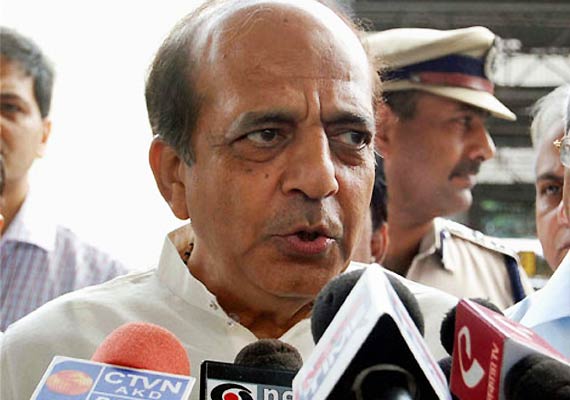New Delhi, Sep 10: The proposed Communal Violence Bill today ran into trouble with NDA-ruled states and Congress ally Trinamool Congress opposing it as "dangerous" legislation and arguing that it would hurt the federal structure of the country.
At a meeting of National Integration Council (NIC) where the issue was on the agenda, NDA and Chief Ministers of the states ruled by it – Madhya Pradesh, Chhattisgarh, Karnataka, Himachal Pradesh, Uttarakhand, Bihar and Punjab – expressed opposition to the draft legislation in its current form.
Terming the proposed Communal Violence Bill as "dangerous", the BJP today opposed the legislation at the National Integration Council meeting here, saying it presumes that the majority community is always responsible for such riots.
"We feel that the Communal Violence Bill is a dangerous Bill as it harms the federal structure of the Constitution. It allows the Centre to hold all the powers. Moreover, it does not consider anybody a citizen and treats a person only as one belonging to either a majority or a minority," Leader of Opposition in the Lok Sabha Sushma Swaraj told reporters.
The BJP made it clear that the Bill in its present form, which has been drafted by UPA Chairperson Sonia Gandhi-led National Advisory Council, should not come to Parliament.
"You will write off a person as a criminal, just because he or she is born in a majority community and you will presume that a person would be a victim only because you are born in a minority community. This bill is very dangerous," Swaraj said.
The main opposition insisted that if passed, this legislation will encourage communal tension instead of reducing it, as it seeks to divide the country into majority and minority communities.
"The draft bill presumes that the majority community is unjust, and the minority community is the victim. But in our country, various sections of community are in a minority in one state and a majority in another state. The provisions of the Bill will go against the majority community in various states," Swaraj said.
Dinesh Trivedi, senior leader of Trinamool Congress, a key constituent of the UPA, said his party also opposes the Bill in the present form.
Opposing the Bill, Chief Minister of BJD-ruled Orissa Naveen Patnaik, said it has some "objectionable" provisions which "directly affect the autonomy of states".
Uttar Pradesh Chief Minister Mayawati, whose speech was read out in absentia, said "it is not the opportune moment to comment on the Bill".
Bihar Chief Minister Nitish Kumar voiced concern over certain provisions in the Prevention of Communal and Targeted Violence (Access to Justice and Regulations) Bill 2011, saying it may create "impression" among the people at large that majority community is "always responsible for communal incidents."
In a speech read out by senior Bihar Minister Vijay Kumar Chaudhary, Kumar asked the Centre to hold "thorough discussion" with state governments for making certain amendments that are warranted before introducing it in Parliament.
He specifically opposed the provision for promulgation of Article 355 of the Constitution, which gives the Centre a right to intervene, in a limited area during "internal disturbance", saying it amounted to "unnecessary interference in state's jurisdiction".
Madhya Pradesh Chief Minister Shivraj Singh Chauhan said the Bill was intended to meet "vested interests" and may undermine the country's federal structure.
"The Bill expresses feeling of mistrust in the state government machinery and lacks clarity in defining crimes for organised communal violence," he said.
"I urge the Union Government to have faith in the state governments and strengthen them, which in turn will strengthen the nation. If state governments are weakened to serve some vested interests, the nation will become weak and it will give impetus to parochial forces," Chauhan said.

